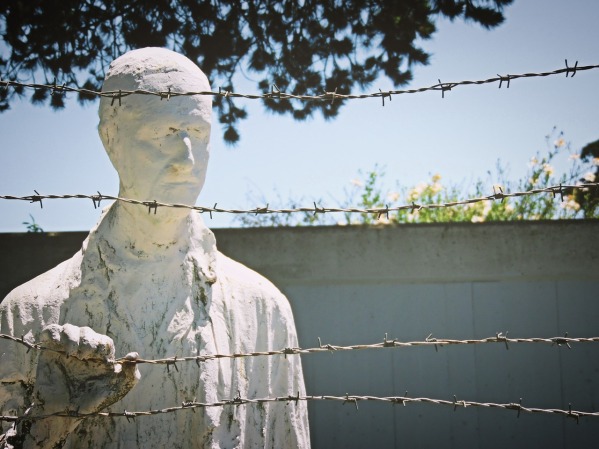In harkening back to Stan Lee’s quote, when we use our voice in the culture at large, it is important to recognize that we have a responsibility to use it well. With a feature film there is the potential for a huge audience, and tacking on a statistic like this,* which turns out to be an estimated number with an unsubstantiated insinuation that people are being held against their will in some way – that strikes me as being irresponsible.
The truth is that accurate statistics surrounding people who experience same-gender attractions or gender identity dysphoria are difficult to obtain.** In gathering data, we don’t have a uniform definition of homosexuality, nor do we have a reliable method of gathering this information – here are a few of the commonly known reasons why:
One of the major reasons for the difference in statistical findings regarding homosexuality and bisexuality has to do with the nature of the research questions…
Most of the studies listed below rely on self-report data, which poses challenges to researchers inquiring into sensitive subject matter.
More importantly, the studies tend to pose two sets of questions. One set examines self-report data of same-sex sexual experiences and attractions while the other set examines self-report data of personal identification as homosexual or bisexual. Fewer research subjects identify as homosexual or bisexual than report having had sexual experiences or attraction to a person of the same sex…
…since many individuals may fail to report outside the heterosexual norm or define their sexuality in their own unique terms, it is difficult to fully grasp the size of the LGBT population.
The type of survey being used and the type of setting a subject is in while being surveyed may also affect the answer that the subject gives.**
What are we measuring?
There are three components, if you will, of sexual orientation: identity, attraction, and behavior. As noted above, when we are trying to find out these numbers in a population, we need to consider what we are looking for – not everyone who has a same-gender sexual encounter, or even several encounters, considers themself to be gay or lesbian. On the other hand, if you’ve only experienced attractions to the same gender, but never identified yourself as a homosexual, or acted on those attractions, does that mean you’re not gay? If so, then can we consider sexual orientation a state of being / personhood, or is it instead something that one does or claims to be? Are we looking at a person’s behavior, attraction, and identity over the course of their lifetime, or only in their recent history?
Along with the variety of factors to consider, a person’s identity, attractions and behavior are difficult to measure. Studies typically rely on what an individual reports about themselves, with no way to verify the accuracy of what the person states.
Does this mean that we are without a clue as to how many people are considered homosexual or lesbian? No, but we need to keep in mind that our best estimates are just that – estimates.
What’s in a Name?
So as we are left without accurate knowledge of the size of the lesbian or gay population as a whole, we are also limited in knowing how many people might have sought change or resolution of their sexuality or gender in congruence with their faith.
The question of what constitutes change in one’s orientation is not well defined: Is it the complete absence of same-gender attractions, identity, and behavior, or some combination of the lessening of any of those three things? Or, is it the capacity to sustain a satisfactory heterosexual relationship with or without continued same gender attractions? Or is it the ability to find contentment in being single with or without these continued desires?
There is a question as to what terminology we may be looking for. While it is common for someone to identify themselves as gay or lesbian, there is no consistent term or label to use in a survey format to identify someone who has experienced a change in their sexual orientation. I’ve heard of the terms “ex-gay” or “post-gay” or “changed,” but these are not ubiquitous. Further complicating matters, in the last few years there has been a growing movement of individuals calling themselves “gay Christians” – which they use to identify themselves as followers of Jesus who experience same-gender attractions but choose to live celibate lives in accordance with their faith. This trend is rejected outright by many who do not wish to add a descriptive term to their identity as Christians.
There is not an adequate descriptive term that summarizes the variety of experiences that people who call themselves gay or lesbian have (each person’s identity, behavior and attractions differ) and this is all the more true for those who are turning away from their same-gender attractions as some kind of definitive state of being…who do not wish to identify themselves by their experiences.
It is hard to measure what is not defined.
Hidden Figures
Due to the continued social stigma surrounding sexuality and gender identity, which has grown more complicated in my lifetime, people who have experienced a resolution of their faith and their sexuality or gender are not usually open about it. The tendency is to blend into the heterosexual majority and never mention their past again – and this is especially true for those who are married.
Churches seldom, if ever, call for people who have had this background to step forward to share about this part of their lives. There are no parades for us, nor class reunions. And the representation of any characters in TV shows or films is practically non-existent.
Yet we are here, quietly living our lives – teaching music, serving in the military, working in health care, or as engineers, spinning tunes as the DJ at a wedding, or crunching numbers for manufacturing companies behind a desk. We are serving in hospice care or in community counseling services after a disaster strikes; looking after children as nannies or raising children in our own homes.*** Our lives are rather normal – we move forward each day without role models, we are not waiting for anyone to validate what we are experiencing or weave us into the latest cinematic blockbuster.
Always guessing…
People in the psychological, sociological, and health care fields do the best they can with the best estimates that they can find. Comparing the best studies we have, we estimate that somewhere between 2% and 5% of the population identifies as lesbian or gay. We don’t know how many people there are who have sought to leave homosexuality behind, either with counseling or without. We have some studies that have found people who have sought change at some point in their sexual orientation and who now identify as lesbian or gay, and there are some studies being done on the fluidity of sexual orientation throughout one’s lifetime, but we have no idea how many people have chosen to not act on their same-gender attractions in an effort to live in accordance to their spiritual beliefs.
Without an idea of the number of people who make up this population, we are left without the ability to know what percentage of that population is significant in any study that would be conducted about us.
For example – if there are 100,000 people who have left homosexuality behind in the US in their pursuit of a deeper relationship with Christ, and a study is conducted with 10 people within that population, the results are not as meaningful as they would be compared to a study done with 400 people. But as noted above, the number of people who make up this population is not known in the first place – we are scattered across the country, many are reluctant to be known, and there is not a rallying point in sight.
With or without solid data, there is no excuse for using numbers in a misleading statement.* It is better to be honest about what we do not know than to be irresponsible and make things up.
* Referring to the quote at the end of the trailer for the film, Boy, Erased, as seen on the movie’s website – please see prior post for more details.
** https://en.wikipedia.org/wiki/Demographics_of_sexual_orientation
https://en.wikipedia.org/wiki/LGBT_demographics_of_the_United_States
*** These are all descriptions of people whom I know who have left homosexuality behind in their lives.
 Having served as an assistant to a surgeon in Germany during WWI, Dietrich von Hildebrand experienced the political turmoil within his country in the wake of their defeat. While we can only look back on this time in history with a clear view of Hitler as a demagogue who brought turmoil across Europe and the world, those who lived through his rise to office did not have that advantage. Early on, Hitler did not look like the Hitler we now know. But Dietrich quickly saw through his schemes to what would become a destructive course of action by this man, and became a vocal opponent of Hitlerism. As many people, even Christians, missed these early signs and eventually allowed Hitler to rise to power, it is good for us to learn from what Dietrich was able to discern.
Having served as an assistant to a surgeon in Germany during WWI, Dietrich von Hildebrand experienced the political turmoil within his country in the wake of their defeat. While we can only look back on this time in history with a clear view of Hitler as a demagogue who brought turmoil across Europe and the world, those who lived through his rise to office did not have that advantage. Early on, Hitler did not look like the Hitler we now know. But Dietrich quickly saw through his schemes to what would become a destructive course of action by this man, and became a vocal opponent of Hitlerism. As many people, even Christians, missed these early signs and eventually allowed Hitler to rise to power, it is good for us to learn from what Dietrich was able to discern.

